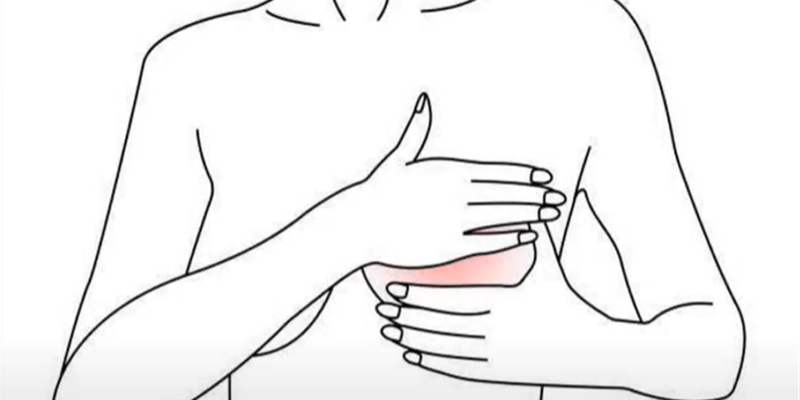
“When I think about my cancer journey, I think about choices. It was about choosing to take ownership of my own personal cancer journey.”
You might remember Issy from her recent feature on Community News, where she shared her story following her breast cancer diagnosis and how her relationship with her partner and herself evolved. As part of Breast Cancer Awareness Month 2022, Issy is back to talk about another part of her story. This time, Issy talks about how important it can be to be an advocate for yourself and to listen to your body. She talks about how her own determination to ask for further tests and to keep talking to her doctor, was crucial in getting diagnosed. Issy has shared her story as a video as part of Macmillan’s Digital Storytelling project. Macmillan’s Digital Storytelling Project is where people affected by cancer have created their own videos to talk about their experiences.
“I am the expert for my own body. I know this doesn’t feel right”
Issy’s video is called “Being my own expert.” Issy shares the story of getting diagnosed with breast cancer. She was diagnosed after she asked for a biopsy, after being told at first that the lump she found wasn’t cancerous. Issy talks about how helpful it can be to ask questions and to keep going if you are worried about symptoms of breast cancer. She also talks about working with your medical professionals to find the right tests, treatment and support for you. Issy’s video has subtitles/closed captions. Watch her story by clicking on the video below:
Issy's story: Cancer being my own expert - YouTube
“I didn’t know that you could miss cancer on a mammogram or an ultrasound if you had dense breast tissue. I didn’t even know what breast density was before.”
Issy feels that part of why her cancer was initially missed because she has dense breast tissue. Finding out about breast density was what pushed Issy to go back to her doctor for further tests. If you are concerned about breast cancer symptoms, we would always recommend contacting your GP. You can read more about risks for breast cancer, including breast density, on Macmillan’s website.
Issy has created a video with Macmillan’s Digital Storytelling Project. Macmillan’s Digital Storytelling workshops support people affected by cancer to tell their stories in their own words. Many Digital Storytellers have found support from attending these workshops and sharing their story as a video. If you’d like to get involved, you can find out more about it on Macmillan’s webpage about the Digital Storytelling project.
“Using reputable websites which are already designed to help me understand this was vital. Knowledge is power and provided me with the strength I needed for the fight ahead.”
Everyone can cope differently with going through the process of getting diagnosed. For some people like Issy, finding out more information online about breast cancer symptoms and how to access a cancer screening can be helpful. It’s important to make sure you’re getting information from reliable sources. This means you can be sure it is accurate and up to date. Macmillan has some webpages that you might find helpful:
Some people also find it helpful to hear other people’s experiences around diagnosis and treatment. You might find it helpful to join our “Breast cancer” group. This is a safe place to talk to other people who are affected by breast cancer. People in the group talk about their experiences, treatment options such as having a mammogram, breast changes, side effects and their emotions. “Go to appointments pre-armed with all the questions, value yourself and what you need, and remember you are the expert of your own body.”
It can sometimes be hard to know what questions to ask at appointments. Here at Macmillan, we have a series of questions to ask your healthcare team if you’re not sure.
If you feel worried about breast cancer or any symptoms you may be experiencing, it’s important to talk to your GP.
If you feel you’d like some further support, you can also talk to our nurse specialists and other teams on the Support Line. You can reach our teams on the Support Line over email, live webchat or by calling 0808 808 00 00. Our Support Line is open 8am – 8pm 7 days a week. Our nurse specialists are experts in NHS processes. They might be able to help talk you through the process of getting a diagnosis and going for tests. You can also reach out to our nurse specialists on the Online Community in our “Ask a nurse” section.
Did you find Issy’s video helpful? Did you feel you could work with medical professionals throughout your diagnosis and treatment to find the right tests and treatment for you? Let other members know your experiences in the comments below. Remember you can also chat about your experiences in our “Breast cancer” group.
Read more like this:
Read more blogs from the Digital Storytelling Project:
Whatever cancer throws your way, we’re right there with you.
We’re here to provide physical, financial and emotional support.
© Macmillan Cancer Support 2026 © Macmillan Cancer Support, registered charity in England and Wales (261017), Scotland (SC039907) and the Isle of Man (604). Also operating in Northern Ireland. A company limited by guarantee, registered in England and Wales company number 2400969. Isle of Man company number 4694F. Registered office: 3rd Floor, Bronze Building, The Forge, 105 Sumner Street, London, SE1 9HZ. VAT no: 668265007